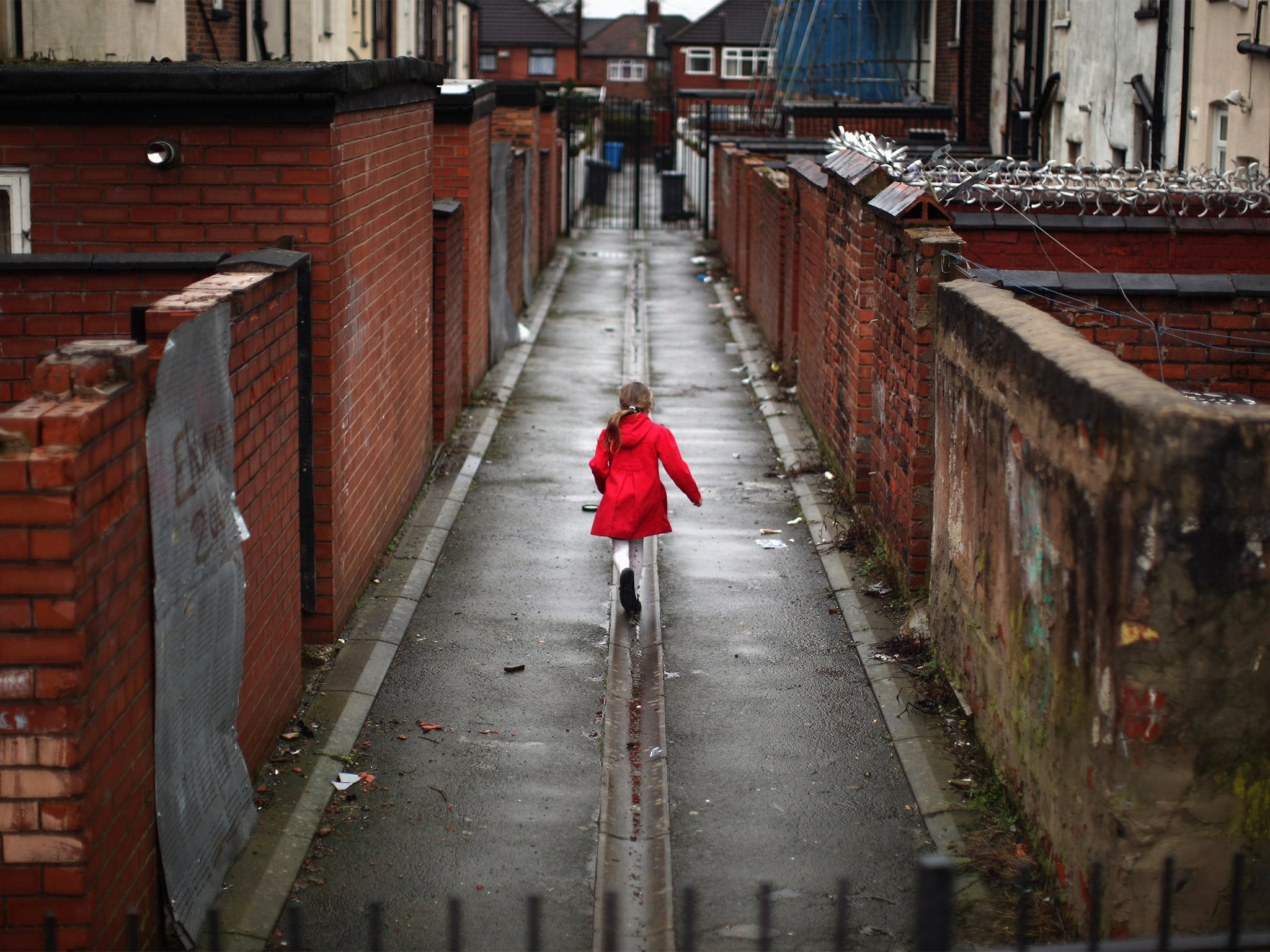Children without bed of their own or enough clothing struggle at school, report warns
‘Stark statistics on poverty should be enough for all to sit up and take action,’ charity says

Your support helps us to tell the story
From reproductive rights to climate change to Big Tech, The Independent is on the ground when the story is developing. Whether it's investigating the financials of Elon Musk's pro-Trump PAC or producing our latest documentary, 'The A Word', which shines a light on the American women fighting for reproductive rights, we know how important it is to parse out the facts from the messaging.
At such a critical moment in US history, we need reporters on the ground. Your donation allows us to keep sending journalists to speak to both sides of the story.
The Independent is trusted by Americans across the entire political spectrum. And unlike many other quality news outlets, we choose not to lock Americans out of our reporting and analysis with paywalls. We believe quality journalism should be available to everyone, paid for by those who can afford it.
Your support makes all the difference.Children in poverty who do not have a bed of their own, or enough clothing or food, are struggling to learn – with some missing out on school altogether amid a lack of support, report warns.
A lack of meals and sleep, as well as expensive school uniforms and transport, are among the issues hindering the education of poverty-stricken children, charity Buttle UK has found.
The majority (55 per cent) of child support workers have worked with children who do not have an appropriate bed of their own at least once a week, according to a survey by the children’s charity.
The poll, of over 1,200 frontline workers, found that 88 per cent had seen parents unable to afford basics like food and fuel at least once a week – and 77 per cent saw children who had to be fed at school.
The issues are worsened by a reduction in support, which prevents these pupils from having “equal access to education” and increases the potential for a life of crime, the report said.
Some children are unable to attend school as their parents cannot afford fuel and travel costs – or they are more likely to be absent with sickness as their families cannot afford heating or hot water.
One child support worker also told the charity: “Children [are] having to take days off school due to unwashed or broken clothes.”
Another added: “Bullying is a huge concern when children are unable to dress like their peers, and have poorer quality clothing, shoes and school bags. [Children are] being discriminated against for where they live and how they live.”
The report said: “Not having regular nutritious meals at home, or not having an appropriate bed to sleep in, means that children do not have the basic foundations for healthy growth or the energy to concentrate at school and learn.”
Joseph Howes, CEO of Buttle UK, said he was “shocked and saddened” by the survey’s findings.
He said: “The stark statistics of the number of children in poverty in the UK should be enough for all to sit up and take action, but the message does not seem to be getting through.
“Make no mistake, this report shows that there are real individuals, behind the statistics, who are struggling on a day-to-day basis in the UK and their reality needs to be heard.”
The findings come as another survey from the National Governance Association (NGA) this week revealed that more schools are setting up food banks and offering meals in the school holidays.
The highest proportion were in the north east of England where 13 per cent of governors were in schools with a food bank.
A government spokesperson said: “Tackling disadvantage will always be a priority for this government. The gap between disadvantaged pupils and their peers has narrowed since 2011, and 85 per cent of children are now in good or outstanding schools compared to just 66 per cent in 2010.
“We have invested an extra £2.4bn this year alone through the Pupil Premium to ensure schools can give disadvantaged pupils the extra support they need.
“We are also providing free school meals for 1.3 million of the country’s most disadvantaged children and continuing to spend over £95bn a year on working-age benefits to support those who need it most.”
Join our commenting forum
Join thought-provoking conversations, follow other Independent readers and see their replies
Comments